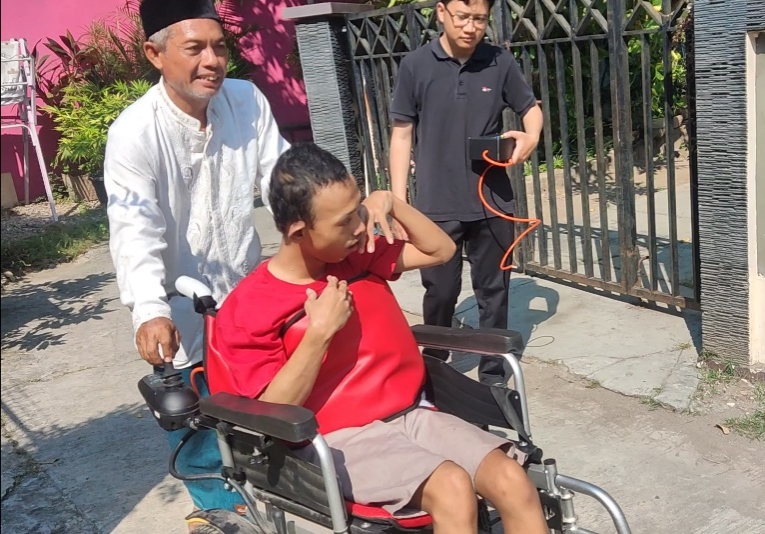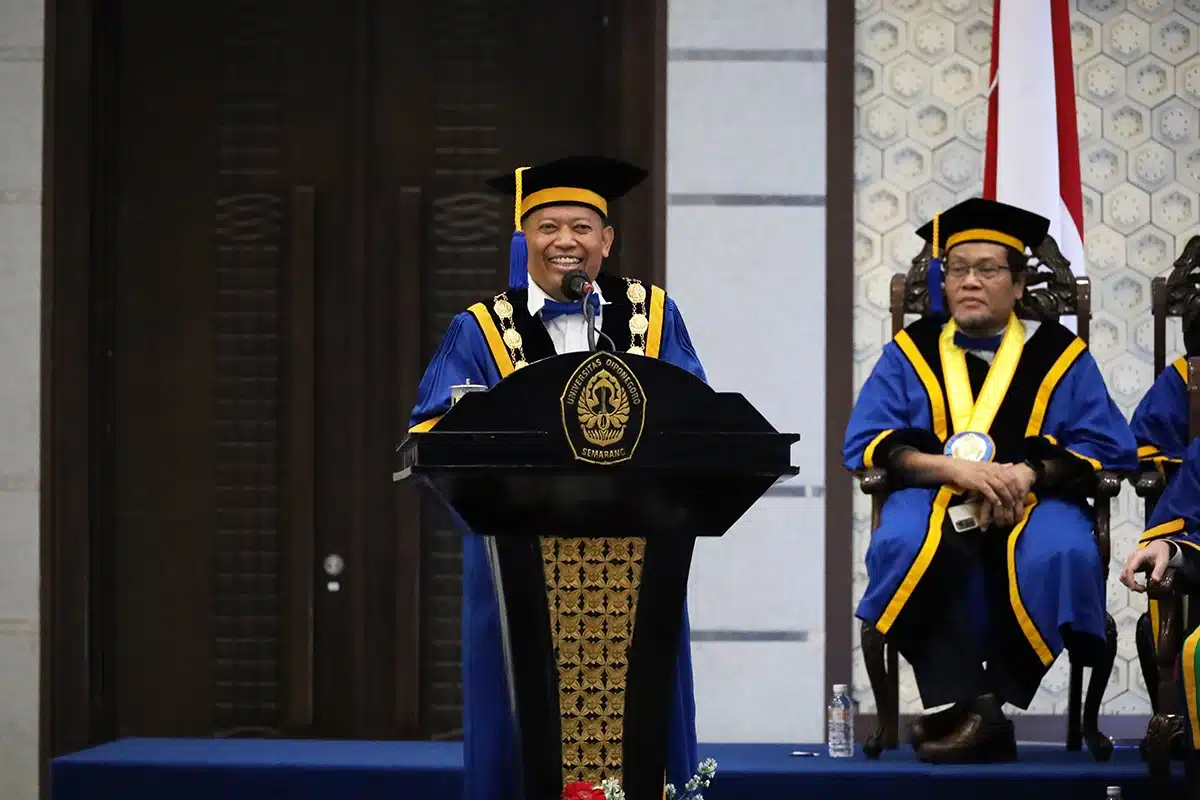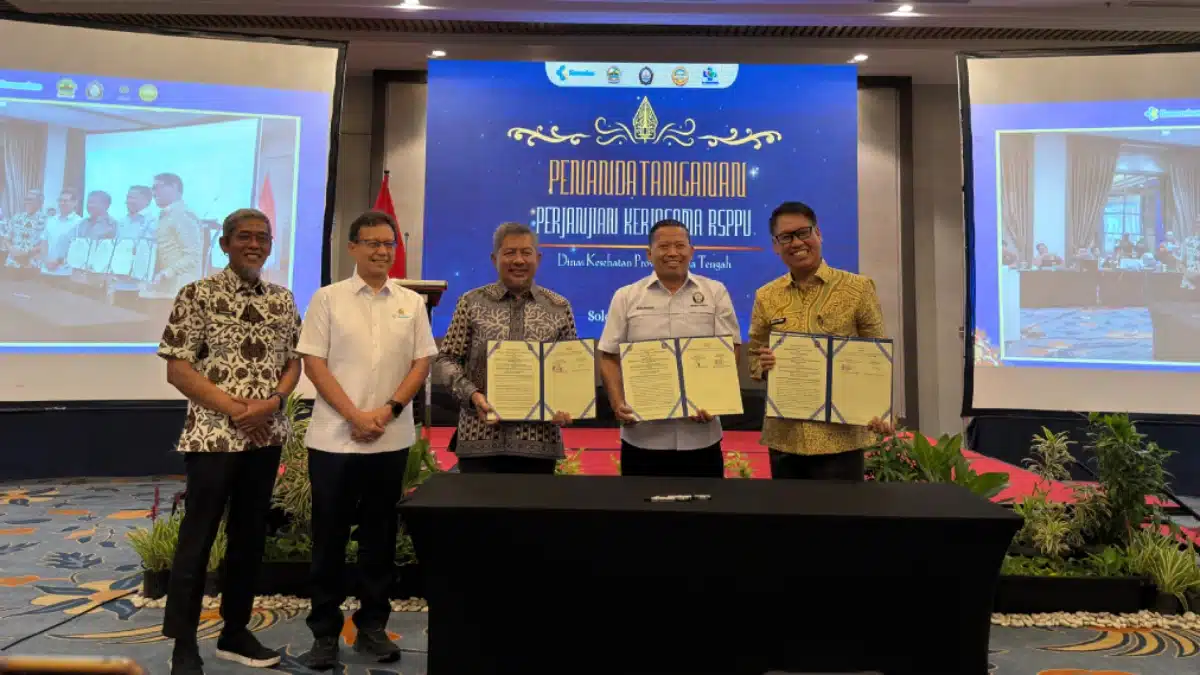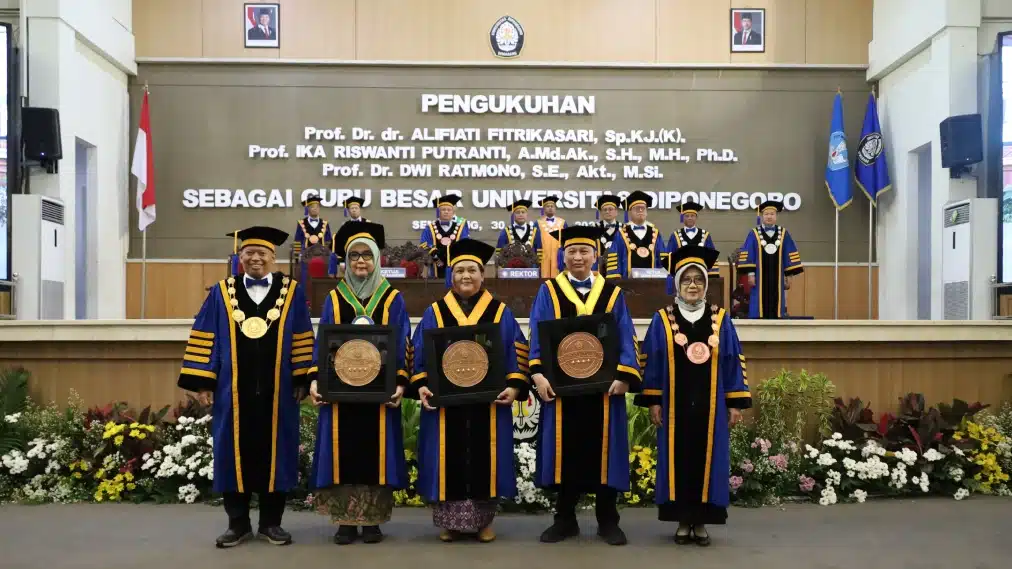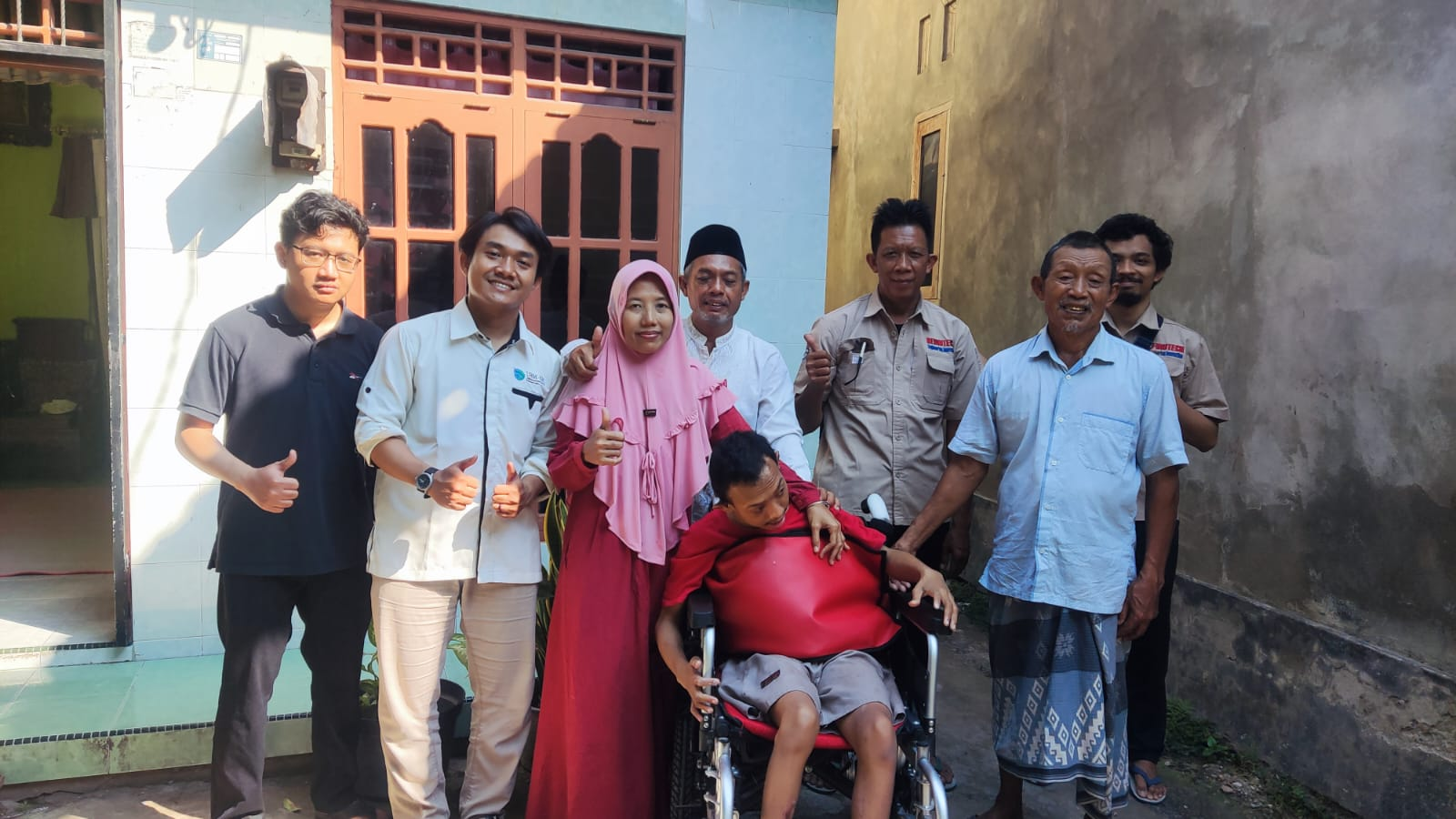Diponegoro University has implemented a Research, Development, and Application program that significantly contributes to the coastal community in Lasem, Rembang Regency. This initiative is led by researchers Dr. Eng. Munadi, S.T., M.T.; Prof. Dr. Jamari, S.T., M.T., I.P.U.; and Prof. Dr. M. Tauviqirrahman, S.T., M.T., focusing on designing and creating assistive devices for pre-adolescent autistic children.
This research and community service activity is a collaboration between the Mechanical Engineering lecturer team of Diponegoro University, the UNDIP Biomechanics Engineering & Research Centre (UBM-ERC), Heri Sutiyono (industrial partner Reinutech), and involving students from the Faculty of Engineering at Diponegoro University, including Ahmad Anwar (Electrical Engineering), Abdul Ghoni (Electrical Engineering), Farhan Ali Husaini (Mechanical Engineering), Ilham Yustar Afif (Mechanical Engineering), M. Yanuar Rifa (Mechanical Engineering), Rinendra Zala (Mechanical Engineering), and M. Izzur Maula (Mechanical Engineering).
Children with special needs, such as autism, face challenges in communication, intellectual development, and social interaction. In Indonesia, the number of children with autism increases every year, requiring special attention and monitoring. Families, especially those who cannot afford a caregiver, need special tools and methods to support their children.
Audio and deep pressure therapy, known to provide calmness and behavioral development in autistic children, is implemented in a care room equipped with a monitoring system and an electric wheelchair with a therapeutic hugging strap. Integrating these tools offers a promising solution to the challenges faced by autistic children and their families.
On Saturday, June 29, 2024, an electric wheelchair with a hugging strap was given to Mr. Udin, the parent of an autistic child in Lasem, Rembang Regency. This electric wheelchair can be semi-automatically controlled by parents using a joystick or wirelessly through a smartphone. 2024 is the second year of implementation of this assistive devices idea, following the previous year’s (2023) success in designing a care room equipped with floor mats, a monitoring camera accessible by parents, music therapy, and a particular mattress.
Dr. Eng. Munadi explained, “We hope this assistive device can provide benefits to Mr. Udin’s family, particularly in coastal areas that may not have received maximum attention. And hopefully, it can be developed for other families in need.”
Prof. Dr. Jamari also added, “As a university, we must carry out the Tri Dharma of Higher Education, which includes education, research, and community service. This project is part of our responsibility as human beings and social creatures to help each other and make a tangible contribution to those in need. The community service aligns with the motto of UNDIP Rector Prof. Dr. Suharnomo, SE, M.Si., that UNDIP must be dignified and beneficial.”
Mr. Udin expressed his gratitude for the support and assistive device provided, which allows his child to engage in activities safely at home under supervision and enjoy outings with loved ones in peace. Diponegoro University and its partners’ ongoing efforts demonstrate their commitment to improving the quality of life for autistic children in coastal communities and ensuring they receive the attention and support they need.
#undipbermartabat #undipbermanfaat

